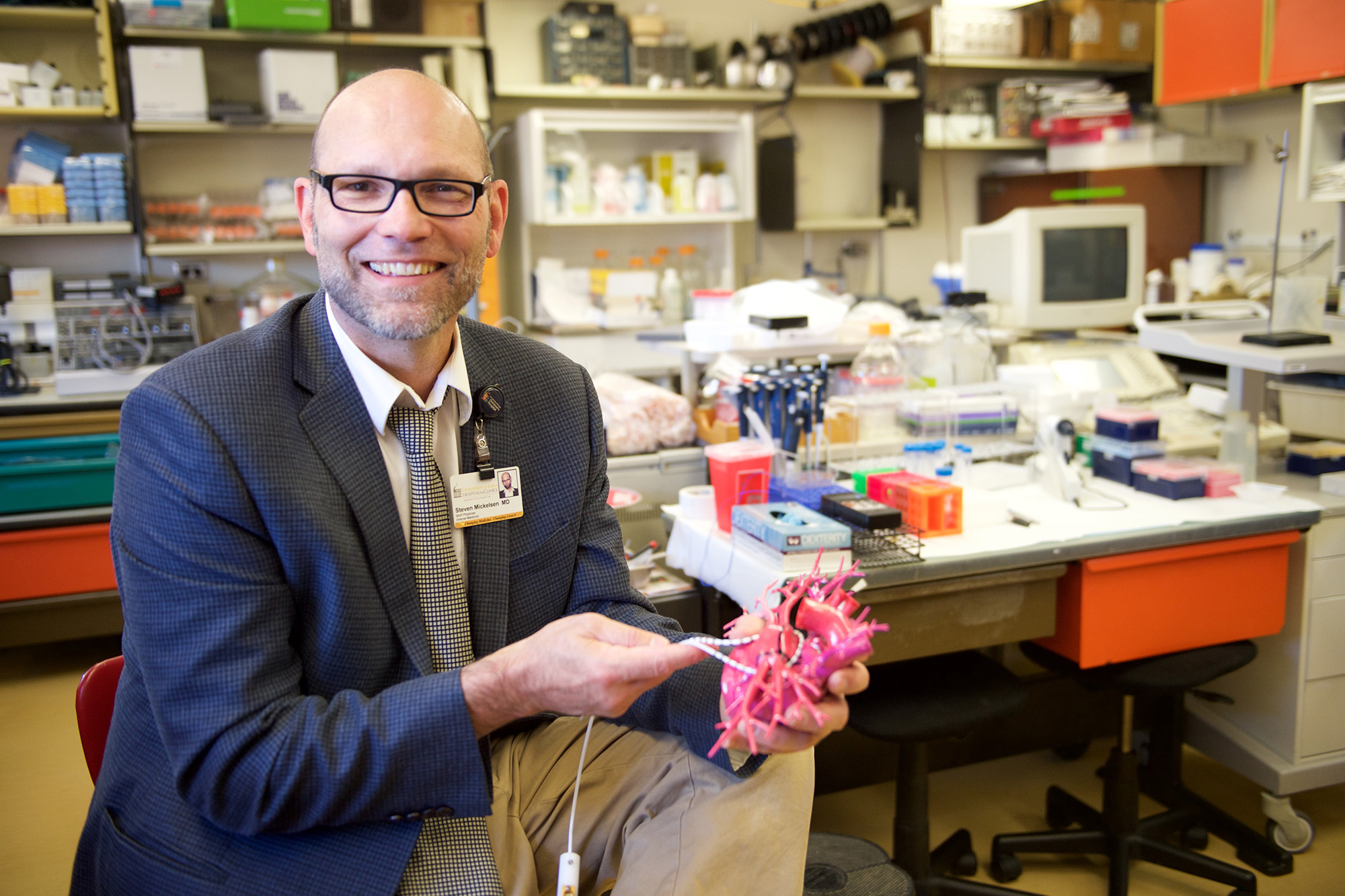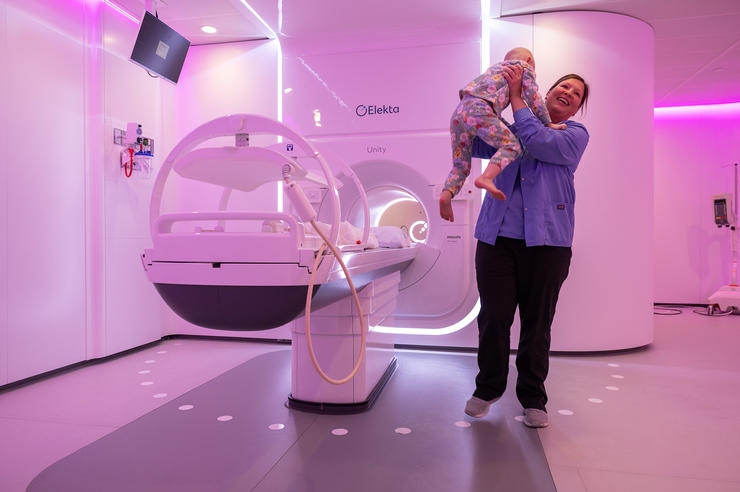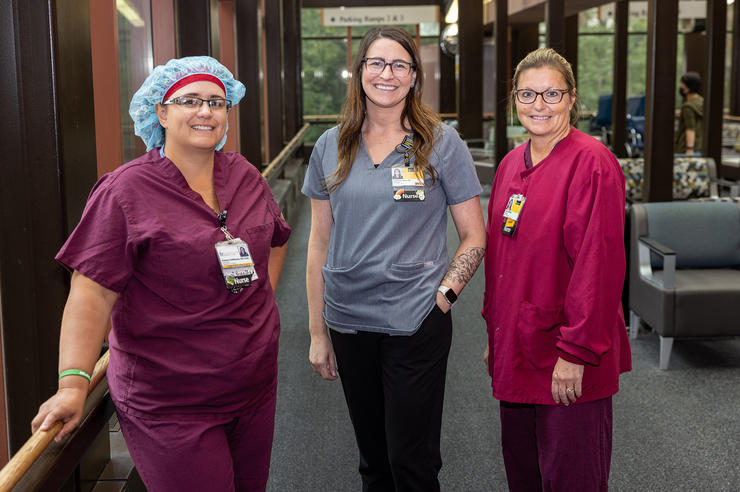A safer treatment for atrial fibrillation

Steven Mickelsen, MD, an assistant professor in the University of Iowa Carver College of Medicine, founded Farapulse Inc. in 2012 to further expand his novel approaches to treating atrial fibrillation.
The U.S. Food and Drug Administration approved a medical technology created by a University of Iowa faculty member to treat atrial fibrillation (Afib) in January 2024. Now, physicians in the cardiac electrophysiology division of UI Health Care are the first in the state to begin using the technology in clinical care.
“Pulse field ablation, particularly Farapulse, offers a safe, more efficient, and effective treatment option for patients with atrial fibrillation in the state of Iowa, while significantly cutting down the procedural times,” said Paari Dominic, MBBS, MPH, director of electrophysiology at UI Health Care. “It will significantly increase access to the procedure and reduce wait times.”
Cardiac ablation is an accepted medical treatment for Afib, but the procedure is typically complex and lengthy, requiring the cardiac electrophysiologist to route catheters through the veins to the heart. The catheter applies extreme heat or cold to damage misfiring heart cells, but there is a risk of nerve or muscle cells outside the heart being damaged. The Farapulse PFA System uses electrical signals that isolate and ablate specific heart cells in a precise pattern, resulting in a quicker and safer procedure.
“UI Health Care’s commitment to fostering innovation sets a benchmark for institutions worldwide. It made a tremendous difference for me personally and now for millions of patients with cardiac arrhythmias.”
The journey from research to patient care
Boston Scientific Corporation received FDA approval for the Farapulse Pulsed Field Ablation (PFA) System, a safer alternative to the standard-of-care treatment. UI startup Farapulse Inc. developed the technology before medical device corporation Boston Scientific acquired the company in June 2021.
Steven Mickelsen, MD, an assistant professor in the Carver College of Medicine, founded Farapulse Inc. in 2012 to further expand his novel approaches to treating Afib, an irregular heart rhythm that occurs when the upper chambers of the heart don’t beat in sync with the bottom chambers, causing episodes of irregular and often rapid heart rhythms. Afib is the most common heart arrythmia, often leading to blood clots and stroke, and is projected to affect over 12 million Americans by 2030.
“The Farapulse PFA system has been used to treat more than 40,000 patients in clinical and commercial settings worldwide,” said Michael Mahoney, chairman and CEO of Boston Scientific, who earned a BBA in finance at Iowa. “I am proud that the University of Iowa, my alma mater, is where the work of cardiologist and inventor Dr. Steven Mickelson led to the founding of Farapulse.”
Innovation born out of collaboration
As a fellow physician and then a faculty member in the UI’s Abboud Cardiovascular Research Center (ACRC), Mickelsen drew on 15-plus years of experience inside cardiac catheterization labs to conceive and build the prototypes that eventually became the Farapulse PFA.
“There are relatively few basic scientists who identify the causes of the diseases that lead to heart arrhythmias—the University of Iowa and the ACRC has traditionally been one of the institutions that has supported these scientists and physician-scientists,” said Barry London, MD, PhD, director of the ACRC and the Division of Cardiovascular Medicine. “There are even fewer electrophysiologists who can see the limitations of our current technologies and successfully invent new, clinically relevant ways to circumvent them. Steven is a unique example, and we could not be prouder of the national and international impact that his inventions will have.”
“I believe innovation thrives in environments that embrace interdisciplinary collaboration and public-private partnerships,” Mickelsen said. “UI Health Care’s commitment to fostering innovation sets a benchmark for institutions worldwide. It made a tremendous difference for me personally and now for millions of patients with cardiac arrhythmias.”


